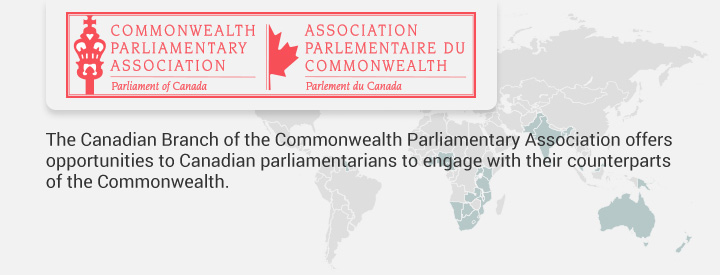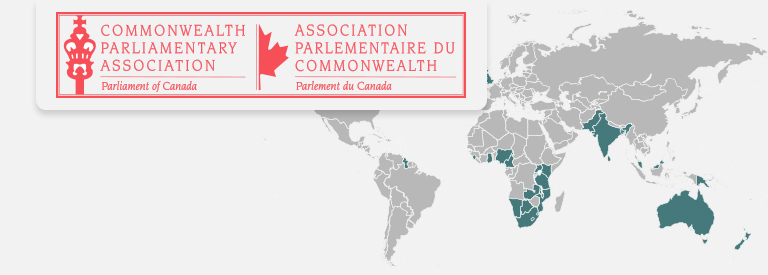About
The Canadian Branch of the Commonwealth Parliamentary Association (CPA) provides the primary means for members of the Parliament of Canada to hold regular consultation with parliamentarians of the Commonwealth. As the parliamentary wing of the Commonwealth, the CPA seeks to foster the study of and respect for parliamentary institutions. It pursues these objectives by means of annual Commonwealth parliamentary and regional conferences, the interchange of delegations, seminars, publications – notably The Parliamentarian (the Journal of Commonwealth Parliaments) – and a wide range of resources on the CPA website www.cpahq.org
The Commonwealth Parliamentary Association (CPA) was founded in 1911 as the Empire Parliamentary Association. Evolving with the Commonwealth, the CPA adopted its present name in 1948 and changed its rules to enable all member branches to participate as equals in the Association's management. Since its inception, when members from five Dominion Parliaments met in London to discuss foreign policy and began talking about their shared parliamentary heritage, the CPA has mirrored the growth of the Commonwealth. It has grown into an organization of over 17,000 members in 180 parliaments and legislatures in countries, states, provinces and territories from across the Commonwealth. There are nine Regions of the CPA: Africa; Asia; Australia; British Islands and Mediterranean; Canada; Caribbean, Americas and Atlantic; India; Pacific; South-East Asia. Canada, as one of the CPA's regions, includes 14 branches made up of the provincial and territorial legislatures as well as the federal Parliament. Within the Canadian Region, there is an active program of exchanges, conferences and seminars for Canadian legislators. The Canadian Region sponsors its own publication, the Canadian Parliamentary Review
- Andrew Lauzon, Association Secretary
- François Delisle, Advisor


